Doom: The Politics of Catastrophe
By: Niall Ferguson
-
Rs 2,375.75
- Rs 2,795.00
- 15%
You save Rs 419.25.
Due to constant currency fluctuation, prices are subject to change with or without notice.
'Insightful, productively provocative and downright brilliant' New York Times
A compelling history of catastrophes and their consequences, from 'the most brilliant British historian of his generation' (The Times)
Disasters are inherently hard to predict. But when catastrophe strikes, we ought to be better prepared than the Romans were when Vesuvius erupted or medieval Italians when the Black Death struck. We have science on our side, after all. Yet the responses of many developed countries to a new pathogen from China were badly bungled. Why?
While populist rulers certainly performed poorly in the face of the pandemic, Niall Ferguson argues that more profound pathologies were at work - pathologies already visible in our responses to earlier disasters.
Drawing from multiple disciplines, including economics and network science, Doom: The Politics of Catastrophe offers not just a history but a general theory of disaster. As Ferguson shows, governments must learn to become less bureaucratic if we are to avoid the impending doom of irreversible decline.
'Stimulating, thought-provoking ... Readers will find much to relish' Martin Bentham, Evening Standard
'Insightful, productively provocative and downright brilliant' New York Times
A compelling history of catastrophes and their consequences, from 'the most brilliant British historian of his generation' (The Times)
Disasters are inherently hard to predict. But when catastrophe strikes, we ought to be better prepared than the Romans were when Vesuvius erupted or medieval Italians when the Black Death struck. We have science on our side, after all. Yet the responses of many developed countries to a new pathogen from China were badly bungled. Why?
While populist rulers certainly performed poorly in the face of the pandemic, Niall Ferguson argues that more profound pathologies were at work - pathologies already visible in our responses to earlier disasters.
Drawing from multiple disciplines, including economics and network science, Doom: The Politics of Catastrophe offers not just a history but a general theory of disaster. As Ferguson shows, governments must learn to become less bureaucratic if we are to avoid the impending doom of irreversible decline.
'Stimulating, thought-provoking ... Readers will find much to relish' Martin Bentham, Evening Standard
The Great Degeneration: How Institutions Decay and Economies Die
By: Niall Ferguson
Rs 1,185.75 Rs 1,395.00 Ex Tax :Rs 1,185.75
High Financier: The Lives And Time Of Siegmund Warburg
By: Niall Ferguson
Rs 2,197.50 Rs 4,395.00 Ex Tax :Rs 2,197.50
The Great Degeneration: How Institutions Decay and Economies Die
By: Niall Ferguson
Rs 2,035.75 Rs 2,395.00 Ex Tax :Rs 2,035.75
Empire: How Britain Made the Modern World - (PB)
By: Niall Ferguson
Rs 2,965.50 Rs 3,295.00 Ex Tax :Rs 2,965.50
The End of the Liberal Order - Paperback
By: Niall Ferguson
Rs 1,950.75 Rs 2,295.00 Ex Tax :Rs 1,950.75
The Ascent of Money - A Financial History of the World
By: Niall Ferguson
Rs 3,415.50 Rs 3,795.00 Ex Tax :Rs 3,415.50
The Square and the Tower - Networks and Power, from the Freemasons to Facebook
By: Niall Ferguson
Rs 1,695.75 Rs 1,995.00 Ex Tax :Rs 1,695.75
Zubin Mehta: A Musical Journey (An Authorized Biography)
By: VOID - Bakhtiar K. Dadabhoy
Rs 892.50 Rs 1,050.00 Ex Tax :Rs 892.50
The Origins of Political Order From Prehuman Times to the French RevolutioN
By: Francis Fukuyama
Rs 4,045.50 Rs 4,495.00 Ex Tax :Rs 4,045.50
Manning Up: How the Rise of Women Has Turned Men into Boys
By: Kay Hymowitz
Rs 845.75 Rs 995.00 Ex Tax :Rs 845.75
The Obama Syndrome: Surrender At Home War Abroad
By: Tariq Ali
Rs 1,100.75 Rs 1,295.00 Ex Tax :Rs 1,100.75
The Quest For Meaning: Developing A Philosophy Of Pluralism
By: Tariq Ramadan
Rs 1,185.75 Rs 1,395.00 Ex Tax :Rs 1,185.75
The Pakistan US Conundrum Jihadists The Military And The People The Struggle For Control
By: Yunas Samad
Rs 1,185.75 Rs 1,395.00 Ex Tax :Rs 1,185.75
An Enemy We Created: The Myth Of The Taliban Al Qaeda Merger In Afghanistan 19702010
By: Alex Strick van Linschoten
Rs 4,197.50 Rs 8,395.00 Ex Tax :Rs 4,197.50
WikiLeaks: Inside Julian Assanges War on Secrecy
By: David Leigh & Luke Harding
Rs 637.50 Rs 850.00 Ex Tax :Rs 637.50
No similar books from this author available at the moment.
PAYING THE PRICE RELIGIOUS EXTREMISM, MISOGYNY, TRANSPHOBIA & CLASS APARTHEID IN PAKISTAN
By: MUNEEB QADIR
Rs 1,795.50 Rs 1,995.00 Ex Tax :Rs 1,795.50
Zubin Mehta: A Musical Journey (An Authorized Biography)
By: VOID - Bakhtiar K. Dadabhoy
Rs 892.50 Rs 1,050.00 Ex Tax :Rs 892.50
The Great Degeneration: How Institutions Decay and Economies Die
By: Niall Ferguson
Rs 1,185.75 Rs 1,395.00 Ex Tax :Rs 1,185.75
High Financier: The Lives And Time Of Siegmund Warburg
By: Niall Ferguson
Rs 2,197.50 Rs 4,395.00 Ex Tax :Rs 2,197.50
The Great Degeneration: How Institutions Decay and Economies Die
By: Niall Ferguson
Rs 2,035.75 Rs 2,395.00 Ex Tax :Rs 2,035.75
Empire: How Britain Made the Modern World - (PB)
By: Niall Ferguson
Rs 2,965.50 Rs 3,295.00 Ex Tax :Rs 2,965.50
The End of the Liberal Order - Paperback
By: Niall Ferguson
Rs 1,950.75 Rs 2,295.00 Ex Tax :Rs 1,950.75
The Ascent of Money - A Financial History of the World
By: Niall Ferguson
Rs 3,415.50 Rs 3,795.00 Ex Tax :Rs 3,415.50
The Square and the Tower - Networks and Power, from the Freemasons to Facebook
By: Niall Ferguson
Rs 1,695.75 Rs 1,995.00 Ex Tax :Rs 1,695.75












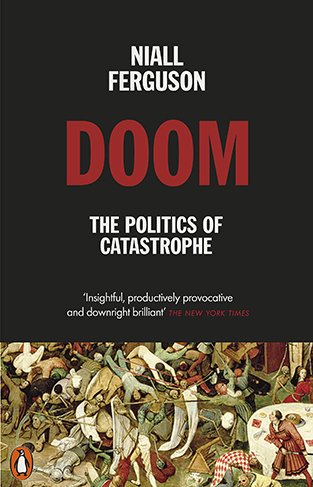
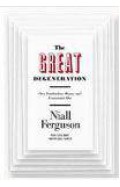
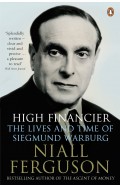


-120x187.jpg?q6)
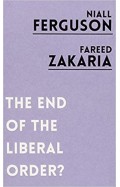

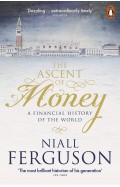

-120x187.jpg?q6)





-120x187.jpg?q6)



-120x187.jpg?q6)






